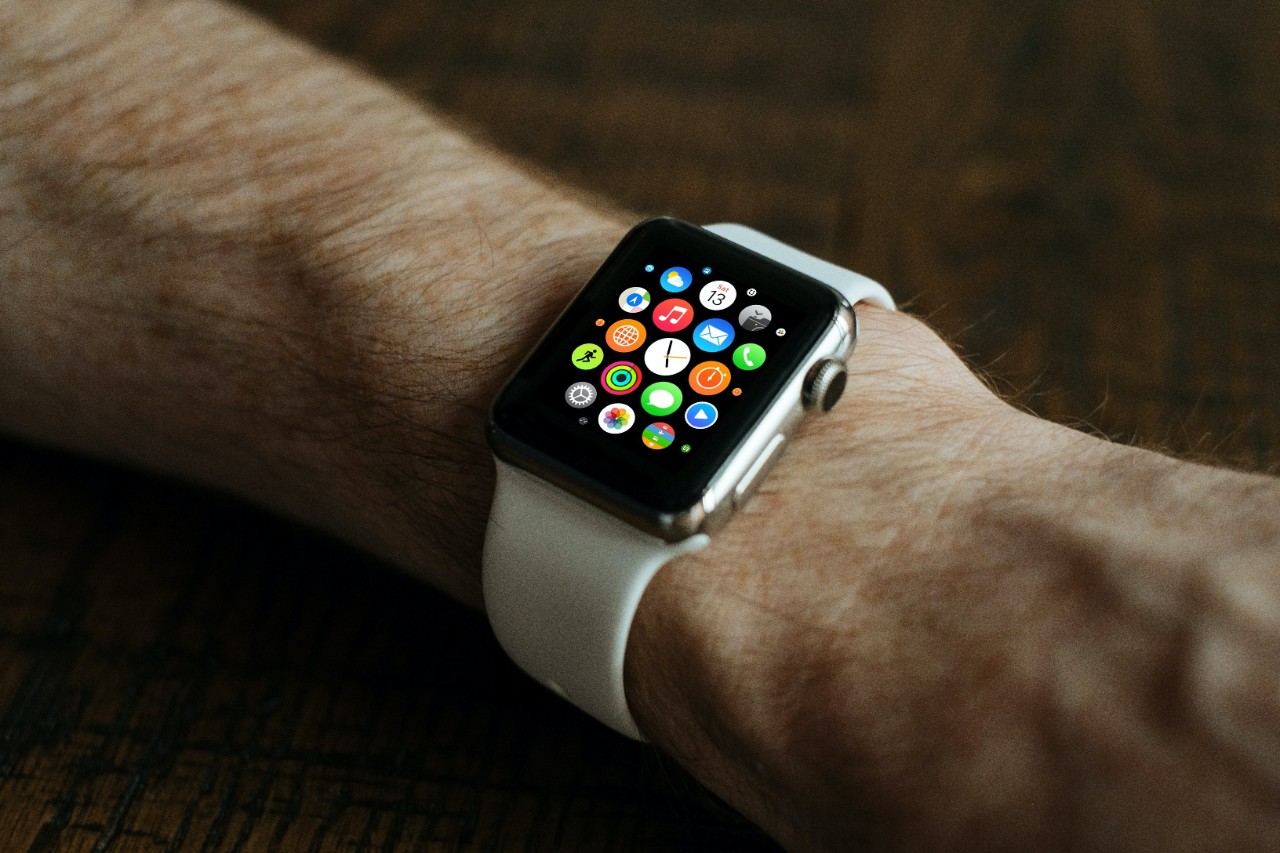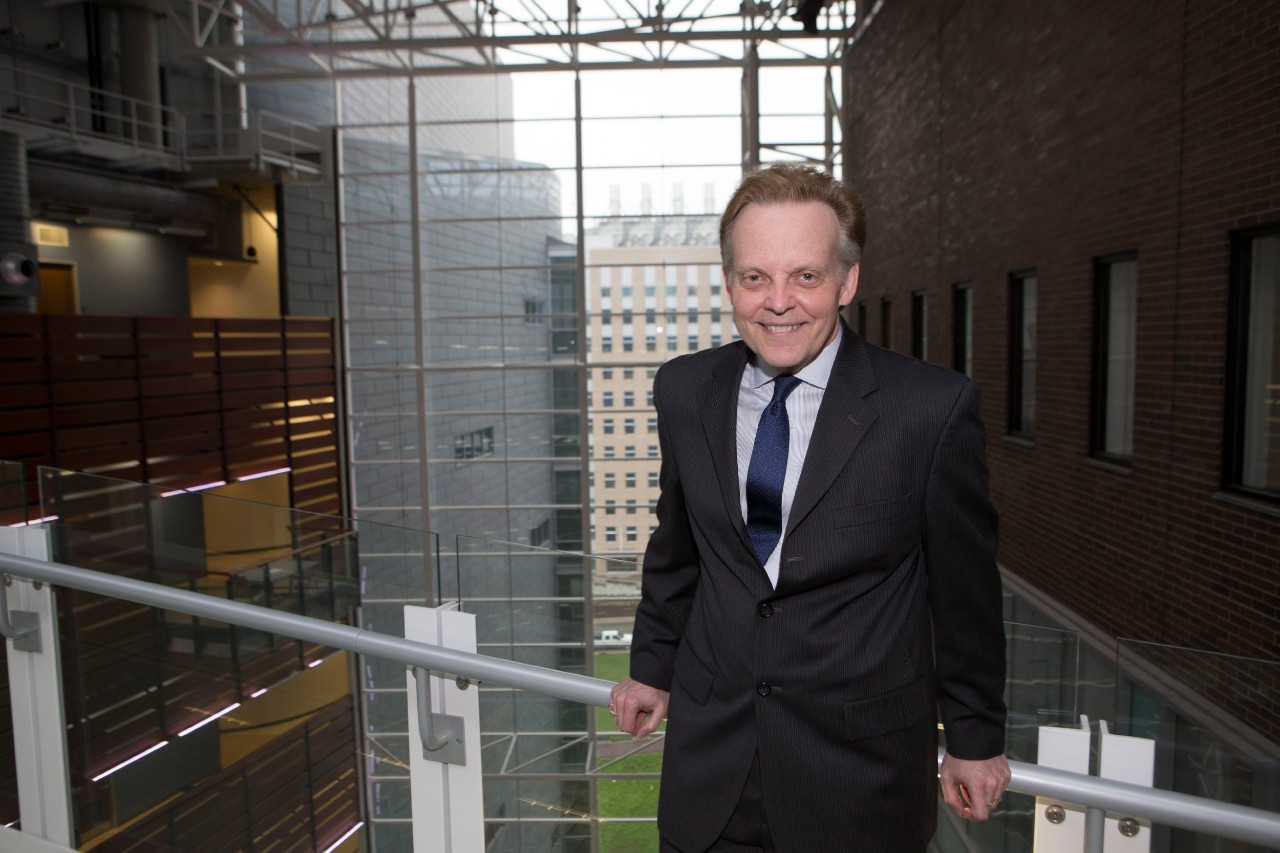
Broadcast Retirement Network: How wearables and AI can help treat heart ailments
UC expert discusses how healthcare professionals can be informed on wearables and patient care
Technology in wearables is improving to the point where they can play a major role in patient care. Broadcast Retirement Network (BRN) aired a segment on how predictive modeling through the use of artificial intelligence may help prevent major heart events. Richard Becker, MD, of the Division of Cardiovascular Health and Disease in the UC College of Medicine, has done research in this area and provided his expertise to BRN.
“We as providers and also members of our community and society are very much interested in doing technologies, such as wearable devices and artificial intelligence," Becker said. "There’s so many applications for health and well-being as well as for treatment. We, of course, want to be across that entire spectrum.”

Richard Becker, MD, of the Division of Cardiovascular Health and Disease at the UC College of Medicine/Photo/Andrew Higley/UC Marketing + Brand
There are a wide variety of wearable devices that track health activity, and the technology is advancing to the point where some are even capable of performing an EKG. Becker said it’s important to acknowledge that the roots of wearable devices date back to the digital watches of the 1980s.
“These technologies that are now being used have had decades to be improved upon, and they really have improved as the years and decades have gone by," said Becker. "Artificial intelligence comes in a variety of levels or layers, but as a starting point if we talk about how to utilize information, artificial intelligence and machine-based learning is probably the first thing people should be thinking about and that is, how does one, a physician for example, take all the information that is out there from varying sources and whittle it down or funnel it down into something that can be used in patient care. It's incredibly powerful and what we’re looking for are ways to utilize that information as a regular part of our assessment. That’s where wearable technology, artificial intelligence have an important interface with the medical community as well as for the lay community as well.”
The BRN host talked about the use of artificial intelligence and all the data it collects and asked Becker how the data today being used by clinicians and if most clinicians are using the data in a wearable and applying that to their patient’s health.
“The answer, unfortunately, is no,” Becker replied. “In terms of what the barriers are, I think there are several. First is a lack of familiarity including within the healthcare profession. I think that’s something we have to own and we have to learn. The second potential barrier is an understanding in terms of how the information can be used and also to protect a person’s privacy, which is really, really important. The third is, where do things stand in terms of approval for the devices, meaning are they approved by the FDA? That’s important because there’s a little bit of hesitancy in terms of what information could a clinician use to treat a patient? What I can say to you is certainly in the medical community there is a lot of effort to better familiarize physicians, clinicians, providers. Secondly, the FDA has cleared a number of smart watches and did so almost a decade ago.”
Becker was also interviewed by Local 12 for a story on cardiac health and the role wearables can play in monitoring that. See that coverage here.
Lead image of a smartwatch/Luke Chesser/Unsplash
Next Lives Here
The University of Cincinnati is classified as a Research 1 institution by the Carnegie Commission and is ranked in the National Science Foundation's Top-35 public research universities. UC's graduate students and faculty investigate problems and innovate solutions with real-world impact. Next Lives Here.
Related Stories
2021 University Recognition Ceremony honors student achievements
April 13, 2021
The University of Cincinnati recognizes students each year who have made significant service, leadership, and academic contributions to the UC community. These students exemplify the spirit of what it means to be a Bearcat.
UC Day of Giving a success
April 28, 2021
University of Cincinnati Day of Giving’s 24-hour challenge was a tremendous success this year, raising $2,219,197 with 3,232 gifts. The fourth annual UC Day of Giving raised its most money to date with alumni, donors, students, faculty and staff joining together to support UC and UC Health.
President picks exceptional talent
April 28, 2021
The University of Cincinnati 2021 Presidential Leadership Medal of Excellence Awards honor six undergraduate scholars for scholarship, leadership, character, service and the ideals of the university. Awardees are spotlighted for exceptional academics, creativity, community service and innovation.
Grad students earn president's highest honor
April 28, 2021
The University of Cincinnati 2021 Presidential Medal of Graduate Student Excellence Awards honor three graduate scholars for scholarship, leadership, character, service and the ideals of the university. Awardees are spotlighted for exceptional academics, creativity, community service and innovation.
GIVEHOPE and BSI Engineering Celebrate Ten Years of Driving Research
August 3, 2021
Years after two personal losses from pancreatic cancer, Cincinnati-based nonprofit GIVEHOPE and consulting firm BSI Engineering are celebrating a philanthropic partnership that has funded 13 pilot research projects at the University of Cincinnati Cancer Center.
Finding community and building a future
July 9, 2021
As a University of Cincinnati College of Medicine student, Sarah Appeadu, MD, ’21, remembers journaling on the “3 Cs” that got her through medical school: Community, community, community. Now, when she lists the people who supported her through four years of training—the last year in a global pandemic—it keeps growing: her family, her church, her classmates, and the college’s Office of Student Affairs and Office of Diversity, Equity and Inclusion. “I look back and it was such a crucial time to really be nurtured in that way,” she says. “I’m so thankful that I had those people. It shows being around the right people really mattered. That’s my same hope for residency even.”
New York Times: Flint Weighs Scope of Harm to Children Caused by Lead in Water
February 1, 2016
Kim Dietrich, a professor of environmental health at UC's College of Medicine, is quoted in this story on the medical problems that could develop among the thousands of young children exposed to lead-contaminated water in Flint, Mich.
Cancer-Causing Gene Found in Plasma May Help Predict Outcomes for Patients
February 18, 2016
Researchers at the University of Cincinnati have discovered that a human cancer-causing gene, called DEK, can be detected in the plasma of head and neck cancer patients.
UC Receives $1.9 Million to Study Pain
February 15, 2016
Jun-Ming Zhang, MD, of the UC College of Medicine, is the principal investigator of a $1.95 million grant to study the interacting roles of the sympathetic and sensory nervous and immune systems in back and neuropathic pain models.
MD Magazine: Generic Drug Equally Effective in Epilespy
February 22, 2016
Michael Privitera, MD, a professor of neurology at UC's College of Medicine and director of the Epilepsy Center at the UC Neuroscience Institute, is featured in this story about research he led that examined the efficacy of generic drug substitution for epilepsy.
